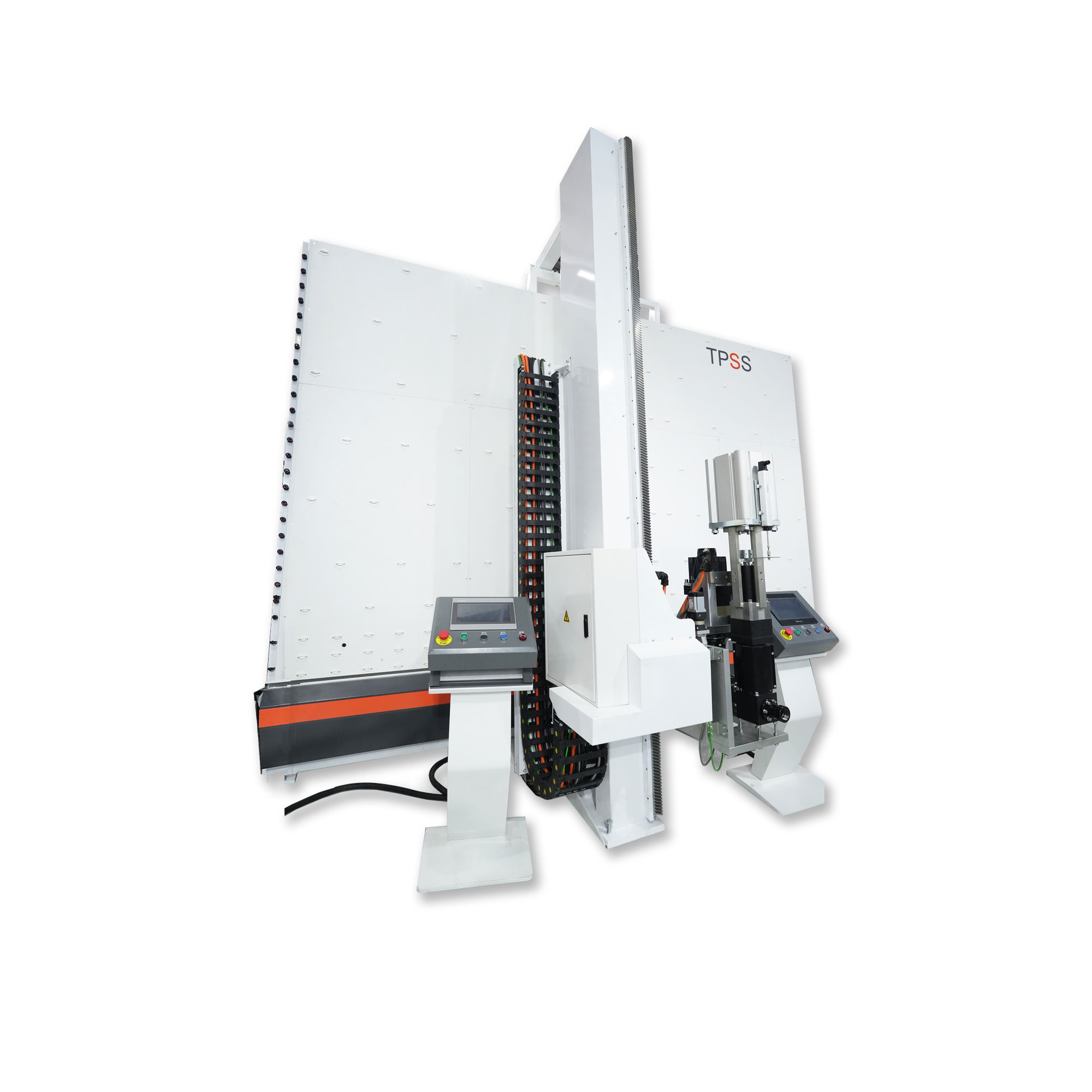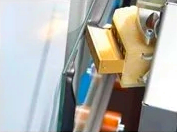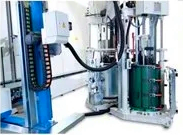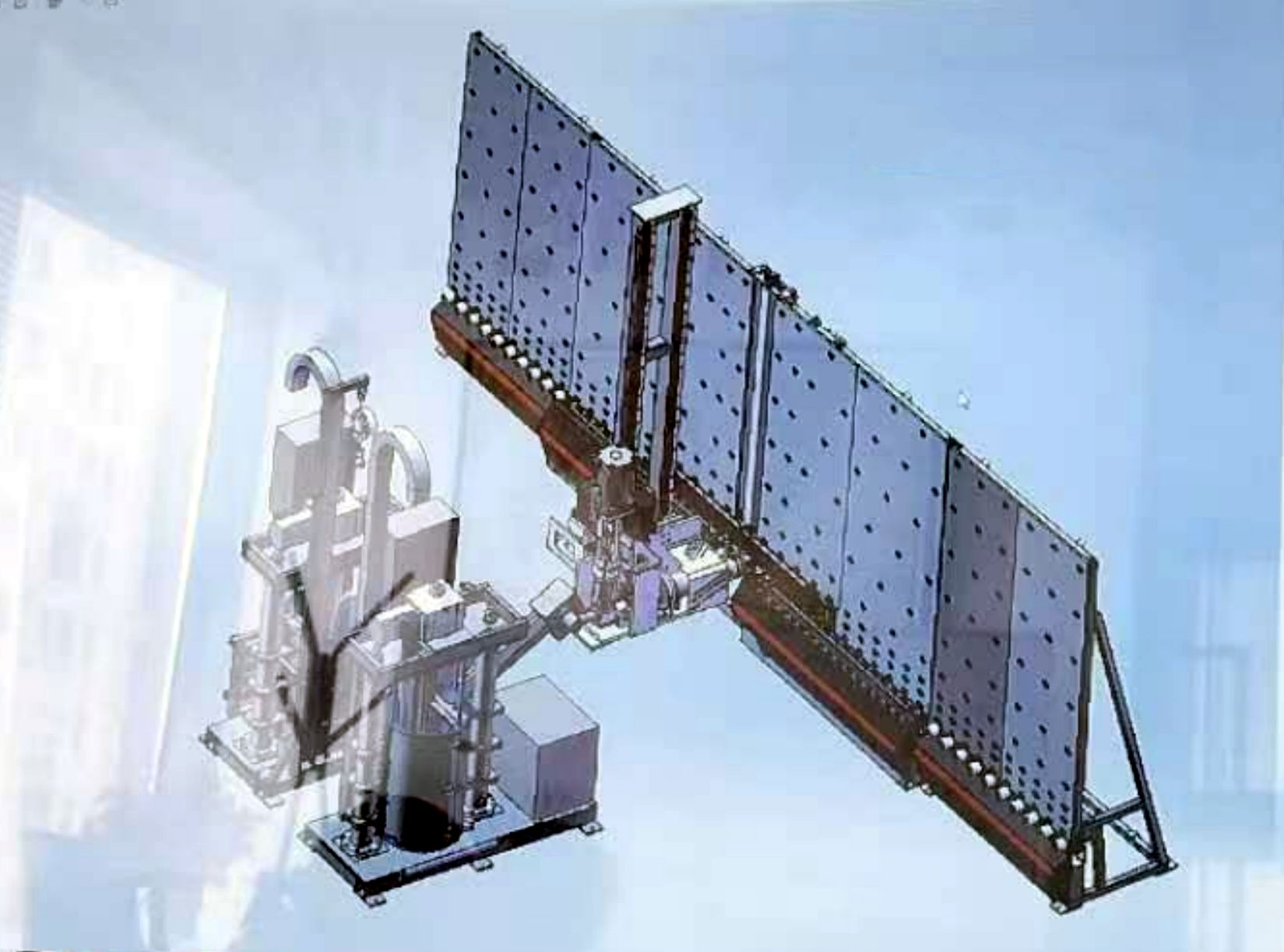Línea de sellado automático con robot TPSS/4SG
Vidrio LIJIANG
Más detalles de equipos automáticos

Principio de funcionamiento básico
For Insulating Glass Manufacturer
By applying TPSS/4SG sealing technology, insulating glass manufacturers can easily update their production methods by replacing new sealing system solutions or adjusting existing insulating glass production lines.
For Glass Doors, Windows and Structural Curtain Walls Production
TPSS sealing technology provides optimal energy efficiency.
For Those Architects and Developers
Propose your ideas, and TPSS sealing technology provides corresponding solutions. Free design without being restricted by technical barriers.
By applying TPSS/4SG sealing technology, insulating glass manufacturers can easily update their production methods by replacing new sealing system solutions or adjusting existing insulating glass production lines.
- The double sealant barrel system ensures uninterrupted glue supply operation, and the sealing in the sealant barrel can be replaced in time during the production process when it is used up;
- The width of the spacer is replaced with an asymmetric three-layer insulating glass spacer, and there is no need to interrupt production when switching;
- Eliminates the bending, sawing, and connection of individual spacers, the filling of molecular sieves, and the coating of butyl extruder;
- The production company does not need to store spacers of different types and specifications and does not need to store molecular sieves.
- The production of insulating glass will not be interrupted due to the loss or error of the spacer frame.
- It can be applied to the production of insulating glass with four sides, two-glass and three-glass insulating glass.
- The maximum production size can reach 9m long.
For Glass Doors, Windows and Structural Curtain Walls Production
TPSS sealing technology provides optimal energy efficiency.
- 12% lower thermal conductivity than aluminum frame spacers;
- Linear thermal conductivity of glass edge area decreased by 60%;
- Can be sealed according to customer specified position, for example, corner joint sealing
- Suitable for rectangular and any free-form production;
- The wind pressure resistance life of fully sealed TPS insulating glass is 35 times higher than that of traditional insulating glass units. Reliable sealing performance to prevent air leakage at the corners of the glass;
- Good quality can be used for bonding the surface of glass curtain walls;
- UV-resistant, airtight insulating glass edge sealing is suitable for silicone structural adhesive sealing;
- Make indoor and outdoor temperatures evenly distributed on the glass surface, reducing energy consumption;
- Greatly reduce condensation of insulating glass.
For Those Architects and Developers
Propose your ideas, and TPSS sealing technology provides corresponding solutions. Free design without being restricted by technical barriers.
- Design is not limited to the shape and size of doors and windows;
- The color of the window frame is reflected on the thermoplastic spacer, and the visual appeal of the glass and frame mixture;
- TPSS sealing technology has multifunctional performance, high-efficiency insulation, fire protection, hollow partition, heat preservation, reduce condensation and other phenomena, and reduce carbon dioxide emissions.
Pasos de trabajo detallados
La línea de sellado automático TPSS es la solución más avanzada y flexible para la producción de vidrio aislante. A diferencia del sistema de fabricación de vidrio aislante tradicional, aplica directamente el espaciador termoplástico sobre el vidrio.


- Se eliminan las operaciones de distribución de doblado, serrado, unión, llenado y recubrimiento de butilo de espaciadores individuales y se simplifica al máximo el almacenamiento en almacén;
- En el proceso de producción de vidrio aislante no hay exceso de material, polvo ni residuos;
- Una línea de producción de sellado automático TPSS puede producir de manera flexible varios pedidos;
- Con las soluciones de carga y descarga de vidrio LIJIANG, se proporciona un rápido apilamiento y clasificación de almacenamiento.



Parámetro técnico
TPSS sealing technology meets the most authoritative global certification requirements
| Countries or Regions | Certification |
| Europe | EN 1279, Part 1-6 |
| Germany | DIN 1286/1, DIN1286/2 |
| France | NF P 78-451, NF P 78-452, Avis Technique |
| Finland | SFS 4704 |
| Netherlands | NEN 3567 |
| Norway | NS 3212 |
| Italy | UNI 10593 |
| North America | ASTM E2190 |
| United States | ASTM E 773, ASTM E774, HIGS |
| Canada | CAN 2-12.8-M76 |
| Japan | JIS R 3209 |
Descripción técnica
 Línea de sellado robótico de vidrio TPSS/4SG de LIJIANG
Línea de sellado robótico de vidrio TPSS/4SG de LIJIANG

